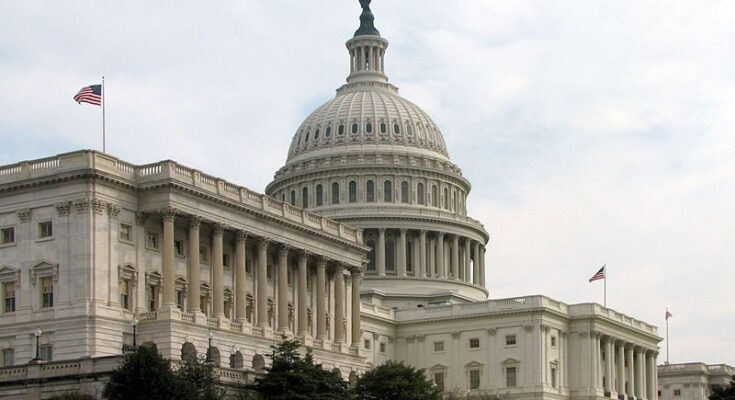Greek Americans have one more reason to be proud on the Fourth of July each year because they don’t only celebrate America’s Independence Day, but also the great influence of Hellenism on the birth of the American nation.
The ideas and practices that are celebrated on Fourth of July and that led to the development of the American democratic republic after 1776 owe a debt to the ancient civilization of Greece.
All of America’s founding fathers had studied ancient Greek philosophers’ texts, drawing inspiration about morals, ethics, and the sense of independence, all fundamental principles of a democratic society.
The Founding Fathers, such as James Madison, Alexander Hamilton, and Thomas Jefferson, were well-versed in the works of ancient Greek philosophers like Aristotle and Polybius.
They embraced classical republicanism, which advocated for a balanced government structure with a focus on civic virtue, public participation, and the common good. The ideas of checks and balances, separation of powers, and the importance of a virtuous citizenry were all influenced by ancient Greek political thought.
The concept of natural law, which suggests that certain rights and principles are inherent to all human beings, was also present in ancient Greek philosophy.
Philosophers like Plato and Aristotle discussed the existence of universal principles that transcended man-made laws. These ideas of natural rights, including life, liberty, and property, were central to the American Revolution and found expression in documents such as the Declaration of Independence and the Constitution.
Plato, in particular, was an important influence, as he wrote about the importance of mixed government, an idea that is fundamental to both the development of the separation of powers and the Constitution.
Aristotle also wrote about the separation of powers as a crucial element in a republic.
Fourth of July: American Independence and Ancient Greece
As author Tom Jewett pointed out: “Thomas Jefferson admired many aspects of the ancient Greeks; he could read and speak the language [and] agreed with many of their precepts, such as the Greek idea that man is measure of all things.”
Jewett makes further reference to Jefferson whose humanistic beliefs were based on this Greek idea of man. Jewett says of Jefferson:
This was the groundwork for his belief in humanism, which recognized no barriers to the use of the mind, and which sought to make all knowledge useful to man. Jefferson particularly admired the Greeks’ idea with respect to man’s relationship to himself.
Jefferson was also influenced by the Greek philosophies of Epicures and the Stoics. He believed as Epicures that happiness was humanity’s main goal and it could be attained through moral and noble actions.
According to Jewett, Jefferson was of the mind that ideas about self-control, rationality, and moderation in life were ideals by which one should live, especially during difficult times. Such ideas were based on those of the Stoics.
US Presidents honor Greek Revolution
Since 1987, the United States honors Greece’s War of Independence Day on March 25th with a commemorative event held at the White House. This is in recognition for the contribution of Greek civilization, the spirit of Hellenism, and the birth of democracy in ancient Athens.
In March 2024, US President Joe Biden honored the deep history of the two nations.
“The fathers of the American nation studied the ancient Greek thinkers; our revolution of 1776 drew inspiration from them. 45 years later, Greek patriots fought for their own independence. That’s why the anniversary of Greek Independence is a special day for America, too. Our countries are connected. We share values, we share inspiration, we share the belief that anything is possible.”
In the reception of 2023 Biden said that “To truly know America you have to know a little about Greece to really understand it,” he said.
“Greece is woven into the very foundations of our democracy and of our nation. We see it across this city, from the columns of the Capitol to the — to the figures that flank the Supreme Court, inspired by Themis, and — the Greek goddess of law of justice — of law and justice. And more than that, we feel it in our nation’s soul, because we are governed as “We the People,” Biden added.
In the speech for Greek Independence Day given on March 22, 2018, former U.S. President Donald Trump honored Greece, calling it “the birthplace of democracy and Western Civilization.”
“All around us here in the United States we see the profound influence of Greek culture, art and philosophy [, and in] the Federalist Papers, our founding fathers consulted the wisdom of the ancient Greek city states when writing our own Constitution,” the former U.S. President said.
“Our nation’s general scientists, lawyers and educators,” said Trump, “continue to find inspiration in the works of ancient Greeks. And throughout this capital city, from the Supreme Court to the Lincoln Memorial, to the beautiful White House, we see the magnificence of Greek architecture. Finally, we see Greece’s enduring influence to so many Americans of Greek descent who contribute so much to this nation that we love.”
And he concluded: “We (Greeks and Americans) stand together for freedom, justice and democracy today and for all time. May God bless Greece, and may God bless the United States of America.”
In November 2016, former U.S. President Barack Obama addressed Athenians during his visit to Greece, acknowledging the contribution of the ancient Athens city-state to the birth of the American Nation, saying that:
“Twenty-five centuries after Athens first pointed the way, 250 years after the beginning of the great American journey, my faith and my confidence, my certainty in our democratic ideals and universal values remain undiminished.”



